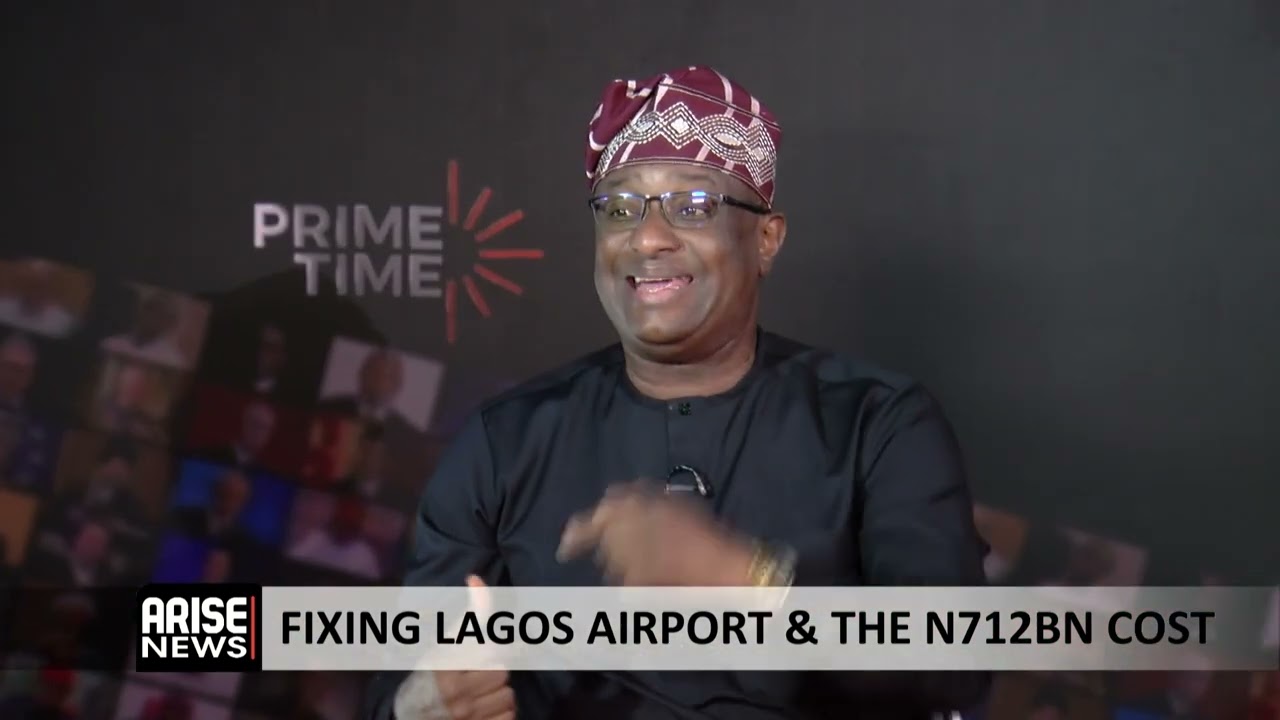
The Minister of Aviation and Aerospace Development, Festus Keyamo, has passionately defended the ongoing reconstruction of the Murtala Muhammed International Airport (MMIA) Terminal 1 in Lagos, describing the project as a strategic investment in Nigeria’s global image, economic future, and aviation infrastructure.
In an interview with ARISE News on Monday, Keyamo declared that both the terminal to be rebuilt as well as the one to be expanded, would form part of a “smart airport” Nigerians can “boast” about, insisting that the government’s focus on Lagos airport is both deliberate and justified.
“We will take it to the Nigerian people during election, when we commission that airport and Nigerians see it, wait whether they will vote for us or not,” he said, underscoring confidence in public endorsement once the facility is unveiled.
Responding to criticisms about the project’s timing amid economic hardship, Keyamo clarified that the terminal under reconstruction is not the recently-built Chinese-funded Terminal 2, but the original Terminal 1, untouched since its 1979 commissioning. “That terminal is totally decrepit,” he said, citing faulty carousels, non-functional central air conditioning, and outdated toilets as part of the structural decay. “What we are doing is reconstruction, not renovation,” he said, adding that only the pillars and slabs would not be torn down.
Keyamo framed the airport as a critical entry point to the nation. “The aviation sector of any nation, especially the airport, makes for a strong first impression of that particular country… a healthy country has a healthy airport,” he said. He explained that Lagos handles 67% of Nigeria’s passenger traffic, making it vital for the country’s tourism, commerce, and diplomatic reputation.
He argued that a failing airport infrastructure undermines investor confidence and increases insurance costs for airlines. “Airlines begin to threaten to stop operations if they cannot scan their baggage properly,” he warned, adding that international insurers often mark Nigeria as high-risk when airport systems underperform.
On the N712 billion (approximately $447 million) project cost, Keyamo insisted it was economical when compared to global airport reconstructions. “It is one of the cheapest airports in the world,” he said, citing examples like Angola ($3.5 billion), Addis Ababa ($7.8 billion), and Cambodia ($1.5 billion).
The funding, he explained, comes from the Renewed Hope Infrastructure Development Fund, derived from subsidy removal savings — not loans. “It is the same model used for the Second Niger Bridge,” he said, reiterating his long-held belief that “special intervention funds” are better suited for critical infrastructure than annual budget allocations, which he called the “envelope system.”
Keyamo projects a multiplier effect on tourism, particularly for peak seasons like Lagos’ “Detty December,” and highlighted broader plans to strengthen underutilised airports in Kano, Abuja, Port Harcourt, and Maiduguri. He noted that Maiduguri is being upgraded to international status to serve the North-East region.
He also detailed efforts to support domestic airlines with cheaper dry leases and government backing. One recent gain, he noted, is the successful negotiation for Nigeria’s Air Peace to secure landing slots at London Heathrow, a development he said has driven down flight prices and boosted competition.
Despite ongoing criticism, Keyamo stood firm that the rebuilt Lagos airport will reflect Nigeria’s readiness for the future. “We are not just doing blocks and cement,” he said. “We are building a smart airport with the highest tech equipment.”
Chioma Kalu
The post Keyamo: $447M Lagos Airport Rebuild Will Boost Nigeria’s Image, Attract Foreign Investment appeared first on Arise News.


